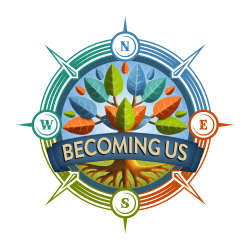If you work with expecting or new parents (or you’re a parent yourself) you’ll know just how stressful parenthood can be at times. And while new stresses are a normal part of new parenthood, it’s not spoken about enough! Stress is a subject that is ideally broached in birth or parenthood preparation classes to at least give parents the heads up about it, and even better, show them what they can do to avoid or manage the most common parenthood stressors.
Parent stress is one thing, but how couples manage stress between them is key. Because when one partner starts counting the nappy/diaper changes and keeping score or pointing out whose turn it is to take the trash out, it’s important for parents to be able to realise that this is not an effective way of saying “I need your help”. Couples need to know there’s ways to work together to get everybody’s needs met.
Stressed parents often focus on one particular thing to try and manage, like when one parent spends all their time with the baby, solely focused on the baby’s needs to the exclusion of all other activities, and the other parent buries themselves in their work. While this may be necessary in the first weeks or months as newborn parents are finding their way, as time progresses, both parents will benefit from regaining some balance in their life so they can cope with future stresses in a healthy way. Healthy stress relief and management involves maintaining their relationship with their partner, their friendships and lots and lots of self-care.
Why is this important to know?
Because not knowing how to navigate a temporarily stressful situation can become a permanent relationship problem.
Instead of picking up on the stress in their partner, or being able to see the challenges their partner is facing, parents can start to think that their partner has something wrong with them, or that they have ‘changed’. Then they may start to react differently to their partner. This way negativity can go back and forth, with parents starting to find themselves becoming more and more frustrated and resentful with each other. And more disconnected as a couple.
And here’s the thing: a loving connection between parents is the key to a lasting relationship and a resilient family. So planning now on how to deal with the stresses you may know new parents can expect is a vital part of postpartum planning.
Here’s some tips to help you explain all of this to your expectant clients:
Let them know some relationship struggles are a normal part of new parenthood - in fact, 92% of couples say this! New disagreements don’t mean that there’s something wrong with either parent or their relationship.
Tell them that stress can look different from person to person; for some it may be being competitive (“I've worked harder than you today”), having tunnel vision (only seeing what's going on with the baby), resenting any interference or help, or looking for someone else to blame (“I can't deal with this, it's all your fault, you sort it out!”). These are all stress responses.
Men and women in our society are traditionally conditioned to deal with stress differently - which can cause even more stress! For example, one partner’s efforts to get the other to talk can cause the other partner to shut down. The more one partner pushes, the more further away the other becomes. This is stressful for both of them.
The key here is to know how to explore issues in a safe way, and be able to work through them together. This might not have been the couple’s usual way of dealing with issues before baby and so they may need some professional help to do this. This is where you can come in - or refer them to someone in your area who can.
What’s one thing you can share with your expectant clients after reading this?
If you want to learn more about how you can help parents prepare for their 'new normal' and find new ways of dealing with parental stress, check out our Becoming Us Professional Training.

